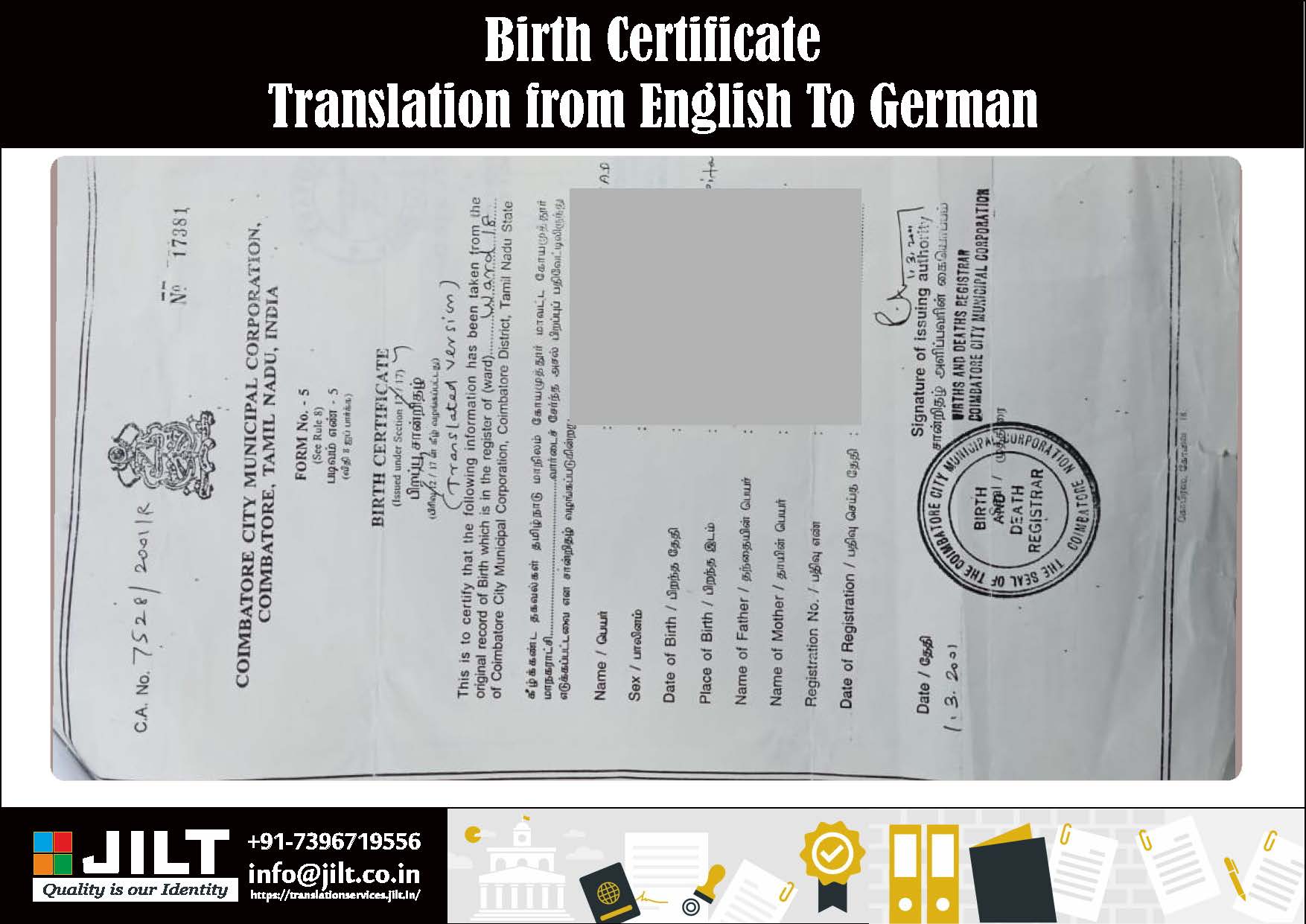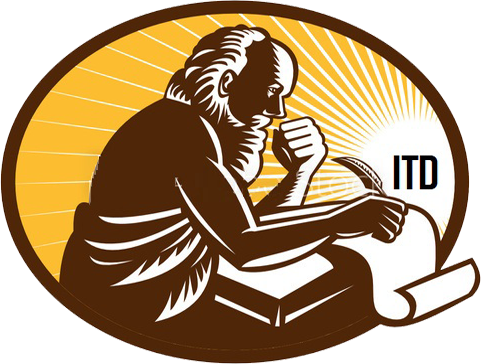
THE IMPORTANCE AND USES OF BIRTH CERTIFICATES’S TRANSLATION AND ATTESTATION FROM ENGLISH TO GERMAN
by Dr. Abu Mazhar Khalid Siddique - September 11, 2023
Birth certificates are vital documents that serve as a tangible record of a person's birth. They hold immense significance in various aspects of life, including legal, administrative, and personal matters. In this blog, we will explore the importance and uses of birth certificates, and we will also discuss the process of translating and attesting them from English to German.
Importance of Birth Certificates
Proof of Identity: Birth certificates are the primary means of establishing one's identity. They provide essential information about an individual, including their full name, date of birth, place of birth, and the names of their parents. This information is crucial for various legal and administrative purposes, such as obtaining a driver's license, passport, or Social Security card.
Citizenship and Nationality: Birth certificates are often required as proof of citizenship or nationality. They are essential when applying for citizenship in a particular country or when claiming the citizenship of a parent or guardian. In some cases, they are also used to determine eligibility for certain government benefits and services.
Marriage and Family Matters: Birth certificates play a crucial role in matters related to marriage and family, such as obtaining a marriage license, establishing paternity, or gaining custody of a child. They are used to verify the identity and age of individuals involved in these legal processes.
Education: Birth certificates are necessary for enrolling children in school. Educational institutions use them to verify a child's age and legal guardianship. Additionally, they may be required for scholarship applications and other educational opportunities.
Medical and Health Records: Birth certificates are often used in the medical field for accurate record-keeping. They help healthcare providers confirm a patient's identity and date of birth, which is essential for medical treatment and insurance purposes.
Uses of Birth Certificates in Legal Proceedings
Birth certificates serve as crucial documents in various legal proceedings and transactions. Here are some common scenarios where birth certificates are required:
Adoption: When individuals or couples adopt a child, they must provide the child's original birth certificate as part of the adoption process. This document helps establish the child's legal identity and background.
Inheritance and Wills: Birth certificates are used to prove the relationship between heirs and beneficiaries in cases of inheritance and wills. They establish the identity of the deceased and their descendants.
Name Changes: Individuals who wish legally to change their name typically need to provide a copy of their birth certificate to demonstrate their current legal identity and the reason for the name change.
Immigration and Naturalization: Birth certificates are required documents when applying for immigration visas, permanent residency, or citizenship in many countries. They help verify an applicant's identity and eligibility.
Passport Applications: When applying for a passport, individuals must submit a certified copy of their birth certificate as proof of citizenship and identity.
Translation and Attestation from English to German
Now, let's discuss the process of translating and attesting a birth certificate from English to German. This process is essential when individuals need to use their birth certificates in German-speaking countries or for any official purposes within the German-speaking community.
Translation:
Choose a Qualified Translator: To ensure accuracy and reliability, it's essential to hire a professional translator who is proficient in both English and German. Look for translators who specialize in legal or official document translation.
Provide the Original Birth Certificate: The translator will need the original English birth certificate to create an accurate translation. Ensure that the document is in good condition and legible.
Translation Process: The translator will translate all relevant information from the English birth certificate into German. This includes the individual's name, date of birth, place of birth, and parental information.
Certification: The translated document should be accompanied by a certification statement from the translator, attesting to the accuracy and completeness of the translation. This statement should include the translator's contact information and qualifications.
Attestation:
Notary Public: Once the birth certificate is translated into German, it may need to be notarized. A notary public will verify the authenticity of the document and the translator's certification.
Apostille or Authentication: Depending on the intended use of the translated birth certificate, you may need to obtain an apostille or authentication from the relevant government authority. This step ensures that the document is recognized as legally valid in the target country.
Birth certificates are indispensable documents with a wide range of uses, from proving identity to facilitating legal processes. When these certificates have to be used in a German-speaking context, translation and attestation are crucial steps to ensure their validity and acceptance. By understanding the importance of birth certificates and the processes involved in their translation and attestation, individuals can navigate legal and administrative matters with confidence, whether in English-speaking or German-speaking countries.
Our organization employs native-speaking translators who can provide certified translation services in any language. We provide translation services in English (Urdu), Arabic (Spanish), German (French), Persian (Iranian), French (Italian), Japanese (Korean), Russian, and any other Indian or local language. Expert proofreaders at our company will inspect the translation. We also provide a courier service to deliver completed documents to our clients.
- Also Read :- Guide to Multilingual SEO for Countries and International Languages
- Also Read :- Preserving Heritage: The Importance of Translating Urdu Old Property Documents into English
- Also Read :- Shipping Order Translation Services
- Also Read :- Documentary Credit D/O Translation Services
- Also Read :- IN-DEPTH ANALYSIS OF CURRENT LOCALIZATION TRENDS IN GLOBAL MARKETS
- Also Read :- GUIDELINES FOR OPTIMAL QUALITY ASSURANCE IN TRANSLATION
- Also Read :- National Trade Certificate Translation Services
- Also Read :- HOW TO MAKE AN SEO-OPTIMIZED MULTILINGUAL BLOG ?
- Also Read :- Trademark and Patent Registration Document Translation Services
- Also Read :- BIRTH CERTIFICATE TRANSLATION AND ITS SIGNIFICANCE
Search
Categories
Archives by Month
Popular Blog
QUICK TRANSLATION QUOTE
Need help with a translation?
Get in touch with us
Whether you have a specific project you want to discuss, need a translation quote or simply want to discuss your requirements, do not hesitate to get in touch with us.











Social Networks